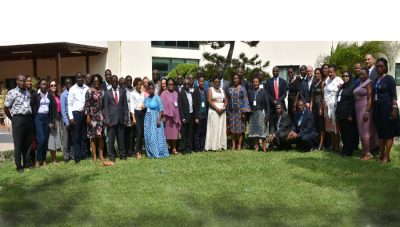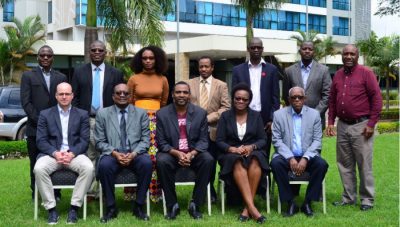Join a powerful, unprecedented alliance for better eye health for all.
Join IAPB-
Choose an alternate language here

The first six-months of 2019 has brought with it various positive developments in the region The first being the publications of the Core Competencies that we have really worked hard for.
WHO Afro released the Core competencies for the Eye Health Workforce in the WHO African region in February. IAPB worked with WHO Afro since the inception of this initiative to develop this policy document which is a step towards improvement of the quality of eye health care. Read more

The IAPB Africa Planning meeting took place in Accra as the first of a series of IAPB regional meetings following the development of the 2018-2021 IAPB Global Secretariat Plan. The meeting had three objectives: To draft the 2019-2022 IAPB Africa Strategic Framework; Re-invigorate collective action and commitment to the implementation of the strategy within IAPB Africa; Clarify the roles of the IAPB Secretariat and Members in Africa. Read more

[1] The East, Central and Southern African Health Community (ECSA-HC) is an inter-governmental health organization that fosters and promotes regional cooperation in health among member states. Member states of the ECSA HC are Eswatini, Kenya, Lesotho, Malawi, Mauritius, Tanzania, Uganda, Zambia and Zimbabwe.
In partnership with Seeing is Believing, IAPB and the Brien Holden Vision Institute (BHVI) has engaged in a project to strengthen the profession of Ophthalmic Nursing and establish Low Vision as a sub-specialty of optometry in sun Saharan Africa.
A Low Vision theory and practice course was conducted at BHVI in Durban by 3 leading low vision visiting faculty from Ireland, Australia and Pakistan. The course provided the fundamental knowledge of causes of low vision, clinical presentation, investigation and management to 4 candidates from South Africa, Nigeria, Kenya and Uganda. The candidates reported that the course provided them confidence in managing low vision and altered th ways in which they were managing low vision.
Upon completion of the course, these same candidates went on to undertake clinical sessions at the prestigious LV Prasad Eye Institute (LVPEI) in Hyderabad India. The supervised practice provides them with guided clinical learning opportunities. The rigorous programme at LVPEI has been challenging to candidates, but they are keeping abreast of the programme and progressing well in their clinical work.
I hope to see many of you at the Council of Members in Dar es Salaam in Tanzania.